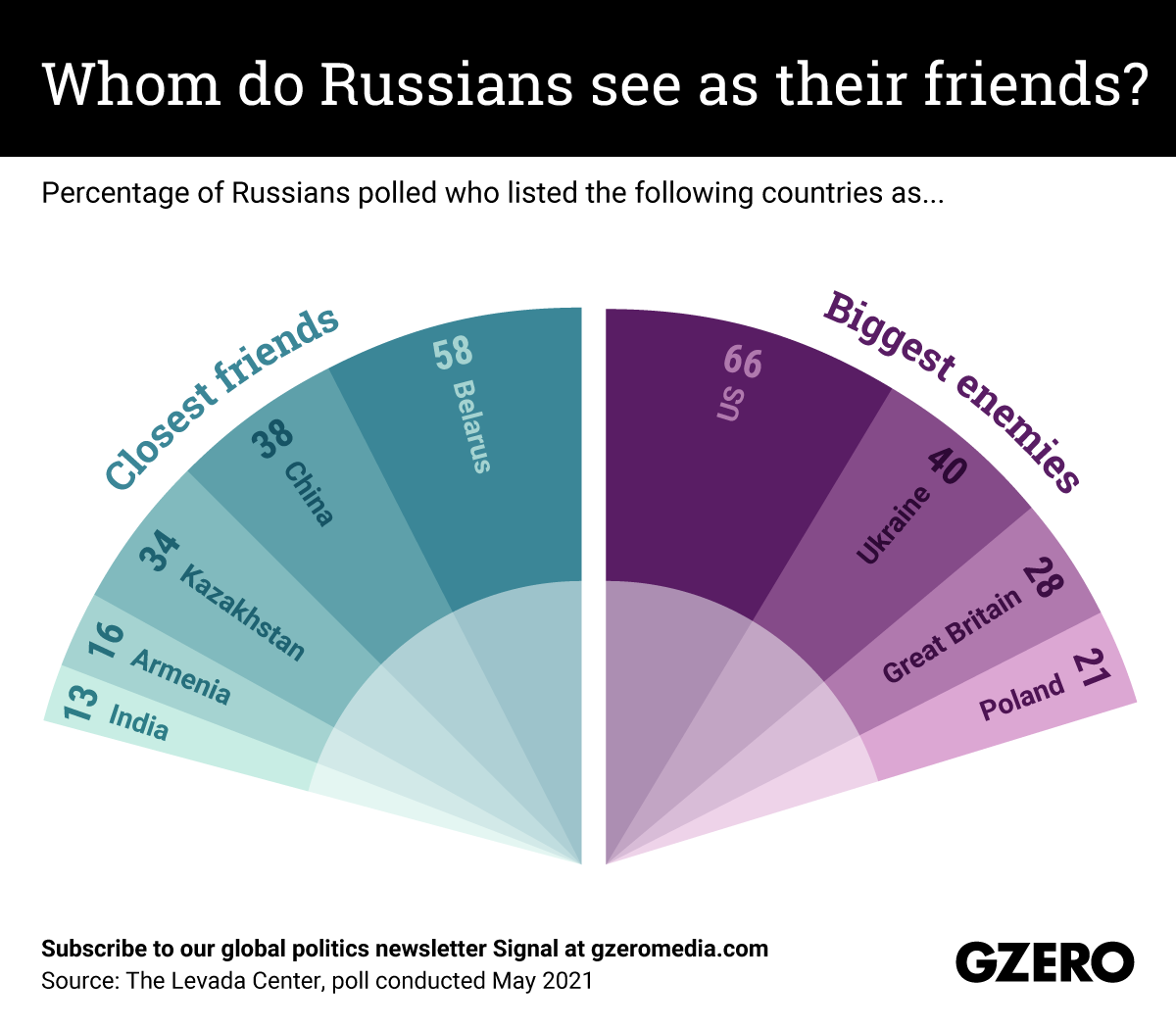The Graphic Truth: Whom do Russians see as their friends?
As anyone who's spent time in Russia or studied the language a bit knows, Russians have a particular concept of "friendship." The Russian word for friend, droog, suggests a relationship vastly deeper, more intimate, and durable than what usually passes for a "friend" in English. Russians have a different word for that — znakomiy (acquaintance). So what countries do Russians consider their "friends" and "enemies?" The latest poll from the independent Moscow-based Levada Center has answers. Perhaps unsurprisingly, the US tops the "enemy" list these days. But right there in second place is Ukraine — a country where many Russians have strong family and historical ties. Things have soured since a 2014 popular revolution ousted a Kremlin-friendly president, prompting Russia to annex Crimea and provoke a civil war in the East. But who would you guess tops Russians' droog list? Have a look here.
